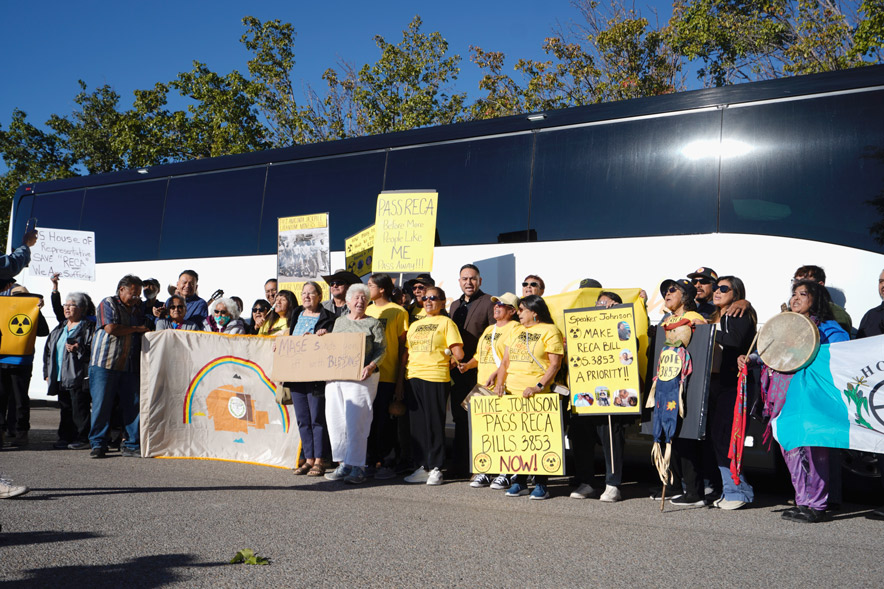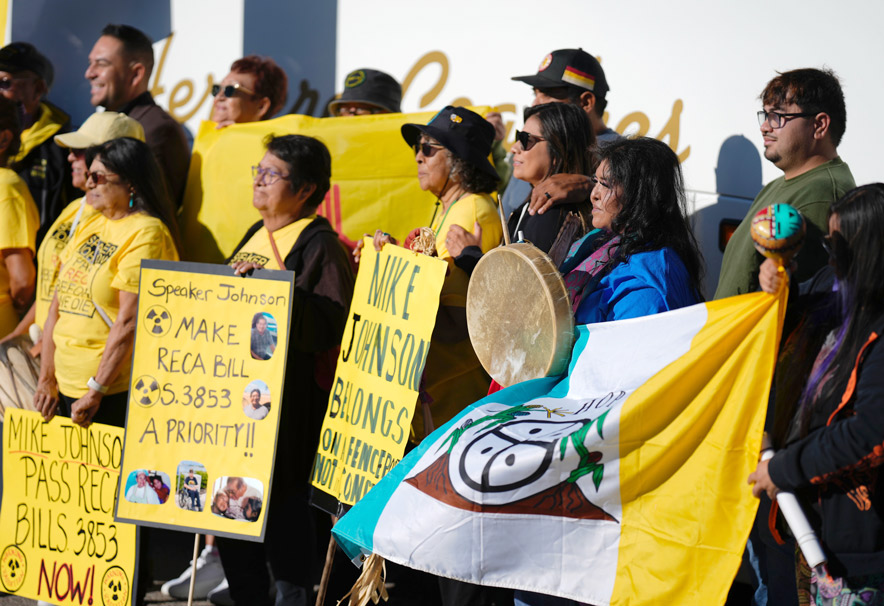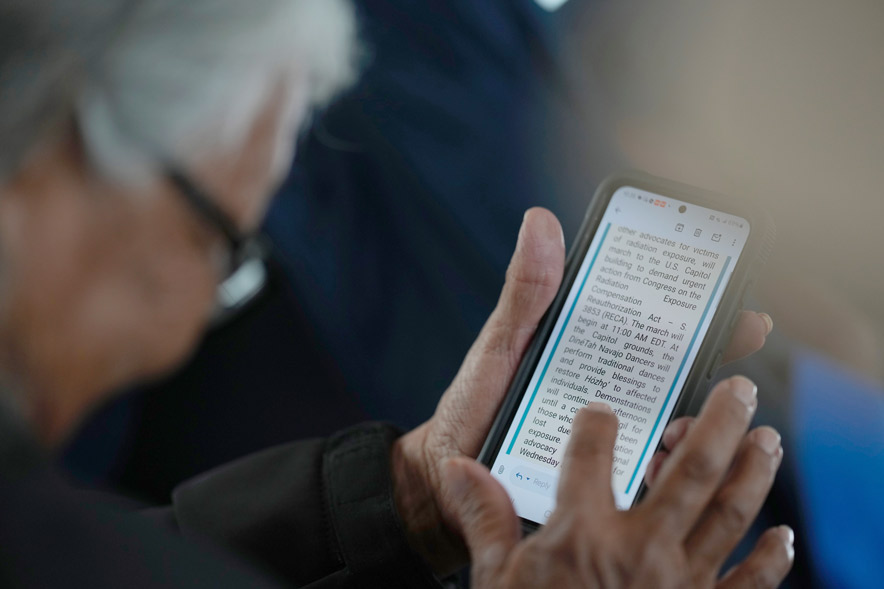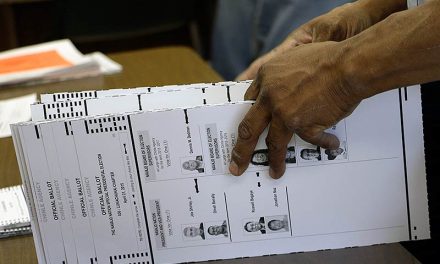
Group ride bus to nation’s capital to advocate for passage of RECA

Special to the Times | Donovan Quintero
About 30 people impacted by uranium mining and other impacts related to it, pose for the cameras on Sunday in Albuquerque. The group is traveling to Washington, D.C., to advocate for the passage of a RECA legislation.
ALBUQUERQUE
About 30 former uranium mine workers, veterans, and downwinders impacted by nuclear weapons tests, suffering from radiation-related illnesses, departed by bus from the Hispanic Cultural Center in hopes they convince House Speaker Mike Johnson to pass RECA.
The group, consisting of Navajo Nation, Laguna Pueblo, Acoma Pueblo, and Hopi elderly tribal members, have five days to convince Johnson to allow a vote on legislation that would aid victims of U.S. nuclear tests, uranium mining, and nuclear waste storage. They left early Sunday morning to make the more than 1,850-mile journey to voice their concerns to lawmakers.

Special to the Times | Donovan Quintero
Lorie Lee Sekayumptewa, the second from right, holds a drum before she and about 30 others depart for Washington, D.C., to advocate for the passage of the RECA legislation on Sunday morning in Albuquerque.
U.S. Rep. Gabe Vasquez who represents New Mexico Congressional District 2, said he was doubtful the continuing resolution, with the Radiation Exposure Compensation Act, or RECA, would pass if it doesn’t pass this week.
“However, I am hopeful, and I’m convinced, because of my conversations with (House Democratic) leader Hakeem Jeffries, that this would be one of the first items that we would vote on in a democratically controlled house,” said Vasquez.
Alvin John, from Jeddito, Arizona, a former uranium miner who worked in Church Rock, said he is traveling to Washington, D.C., to address health-related issues related to uranium exposure.
He added he has been suffering from joint and back pain for 27 years and has not found effective treatment despite multiple doctor visits.
“I’m so glad I’m going on this trip to see if (Speaker) Mike Johnson can pass the bill that way we can be compensated,” said John, touching on the inadequacy of healthcare providers. “I’ve been suffering for 27 years — my knee, my joints, my back – even though I go to doctors, tʼóó náwóʼdáʼádáyiiláá shiigháán.”
John said in Diné that the group heading to the nation’s capital may be small, but they are traveling on behalf of thousands of people impacted by uranium.
“T’óó ahojiyói diné biniyé dééké’; dóó bee lą́ʼádóólééł shį́į́,” he said.
When the group arrives, they plan to gather on the Capitol lawn from Tuesday to Thursday to advocate for the passage of legislation reauthorizing RECA publicly. The bill, which would provide health screenings and financial assistance to those sickened by exposure to radiation, has sat on Speaker Johnson’s desk since March, when it was passed, 69-30, by a bipartisan vote in the Senate.

Special to the Times | Donovan Quintero
Evie Tsosie, who said she worked for Kerr-McGee at Ambrosia Lake for three years, reads on what the next days look like for her during her advocation for the passage of the RECA legislation on Sunday. Tsosie and about 30 other people impacted by uranium mining are traveling to Washington, D.C., to press the U.S. House to approve legislation.
Rep. Vasquez said he hopes Speaker Johnson musters up the courage to include RECA in the continuing resolution bill.
“That text hasn’t been released, but we’re expecting it this week,” he said.
Beginning in the 1940s, mining for uranium in the Navajo Nation started in Cove, Arizona, and expanded throughout the reservation. The largest uranium-related accident in U.S. history took place in Church Rock, New Mexico, in 1979, where families and their once pristine lands were untouched by uranium mining companies.
Navajo workers were not told of the deadly risks of working in underground uranium mines, even as the government was studying them to evaluate the effects of radiation exposure.
The group plans to make stops in Oklahoma City, Oklahoma, Memphis, Tennessee, and Bristol, Virginia, before arriving in Washington, D.C., on Tuesday evening. On Wednesday morning, they’ll visit the Navajo Nation Washington Office for a brief meeting before marching in support of a RECA passage in their traditional attire.








 Highway 264,
Highway 264, I-40, WB @ Winslow
I-40, WB @ Winslow